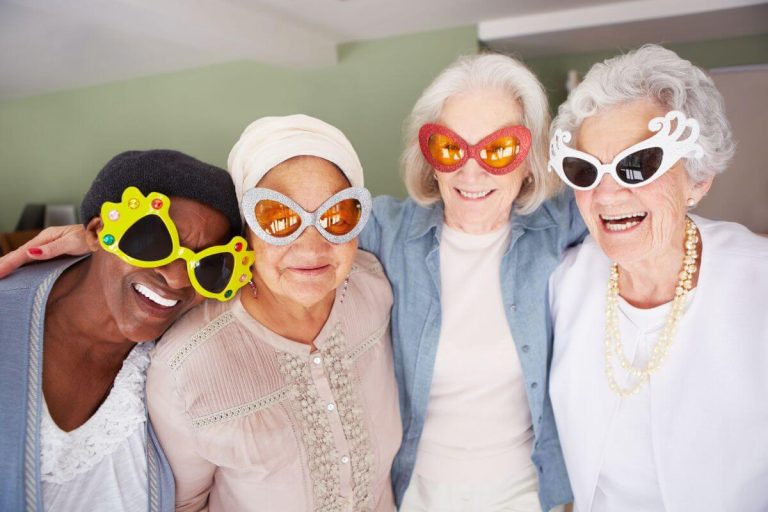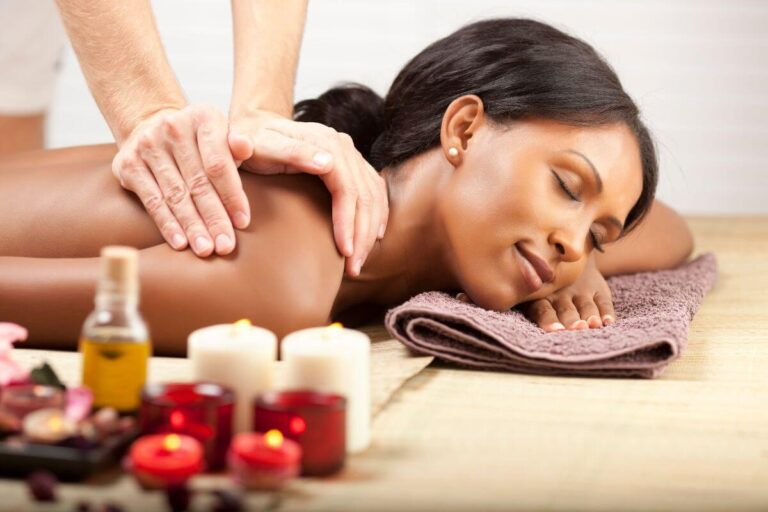10 Polite Habits Most People Secretly Can’t Stand and How to Avoid Them
You probably try to be polite in your daily interactions, following social norms to avoid offending others. However, some common polite habits might actually bother people more than you realize.
Understanding which courteous behaviors can irritate others helps you communicate more effectively and avoid unintentional annoyances.
Overusing ‘Please’ in every sentence

You might think adding “please” all the time makes you sound extra polite. But when you use it in nearly every sentence, it can feel less sincere and more like a habit than genuine politeness.
People could start tuning it out or even find it irritating. You don’t want your requests to lose their impact because “please” is everywhere.
It’s good to be polite, but balance is key. Save “please” for moments when it really counts, and your politeness will come across as more thoughtful.
Constantly apologizing for small things

When you say sorry all the time for tiny things, it can start to feel less meaningful. People might begin to tune out your apologies because they happen so often.
You don’t have to apologize for things that aren’t truly your fault. Saying “sorry” every time you bump into someone or ask a question can make you seem unsure or nervous.
Try to save your apologies for moments that really matter. This makes your words stand out and shows others you respect their time and feelings without overdoing it.
Excessive small talk about the weather

You’ve probably experienced conversations that start with the weather and never really go anywhere. While it’s an easy way to break the ice, too much weather talk can feel repetitive and dull.
When every chat revolves around rain, sun, or wind, it may seem like you’re avoiding deeper or more meaningful topics. You might notice people tuning out or giving short answers just to move on.
Sometimes, jumping past the weather to something more personal or interesting creates a better connection. Trust your instincts—people often appreciate variety over small talk that feels like filler.
Laughing too loudly at minor jokes

You might think showing enthusiasm by laughing loudly is polite. However, when the joke is minor or not very funny, it can feel forced or insincere to others.
Your loud laughter can make people uncomfortable or self-conscious. It may come across as trying too hard to please.
Sometimes, a soft smile or a quiet chuckle is enough to show you appreciate the humor. This lets everyone feel more at ease without overdoing it.
Checking phone mid-conversation politely

You might think glancing at your phone during a chat is harmless, especially if you do it politely. However, it often comes across as distracting or rude, even if you don’t mean it that way.
If you need to check your phone, excuse yourself briefly. A quick apology or explaining why you need to look can help keep the conversation respectful.
Try to keep your attention mostly on the person talking. Phones can wait, and giving your full focus shows you value the interaction.
Overexplaining simple requests

When you ask for something simple, like passing the salt, adding a long explanation can feel unnecessary. It may confuse or tire the listener instead of helping.
You might think more details make you clearer, but often they slow down the interaction. A quick request usually works just fine.
Try to keep your asks straightforward. Respecting other people’s time by being brief shows consideration without losing politeness.
Always nodding without genuine agreement

You might think nodding shows you’re listening, but doing it without really agreeing can feel insincere. People often notice when your nods don’t match your true thoughts.
This habit can make conversations less honest. It may confuse others, leaving them unsure if you truly support their ideas or just want to avoid conflict.
Being honest doesn’t mean you have to be rude. Instead of automatic nodding, try using simple phrases like “I see” or ask questions to show you’re engaged without pretending to agree.
Holding doors for people far behind
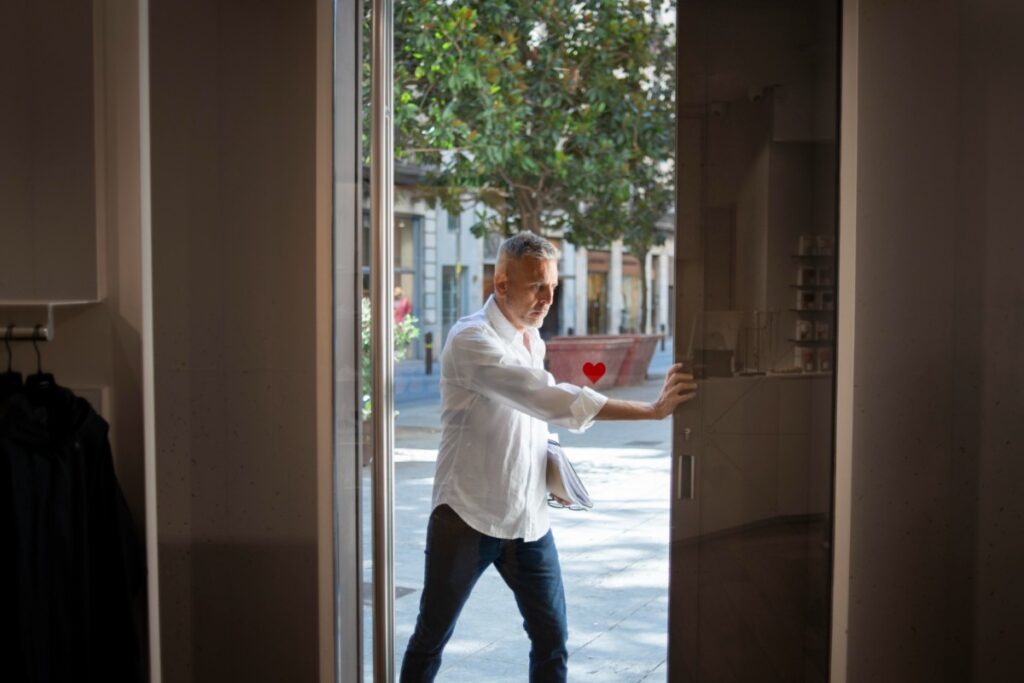
You might think holding the door is always polite. But holding it when someone is still far behind can actually slow down the flow of people.
It can create awkward moments where you’re left waiting, and the person doesn’t know whether to speed up or keep their pace. You might feel stuck in place longer than you want.
Instead, try to judge if someone is close enough before holding the door. This way, you help without interrupting the natural movement of those walking behind you.
Using formal titles unnecessarily
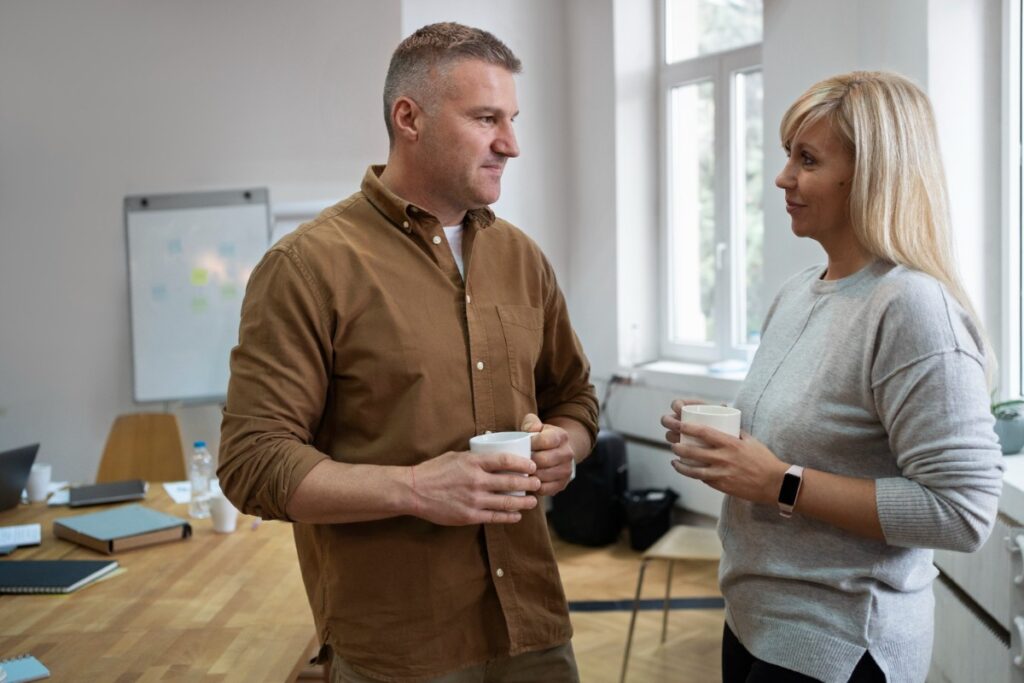
When you use formal titles all the time, it can feel distant and overly stiff. Calling someone “Mr. Smith” or “Dr. Jones” in casual settings can create an awkward barrier between you and others.
People often prefer a more relaxed vibe, especially among friends or colleagues. You might mean to show respect, but it can sometimes come off as trying too hard.
If you’re unsure, listen to how others address each other. Matching their tone usually makes the conversation smoother and more comfortable.
Avoiding eye contact to be ‘polite’
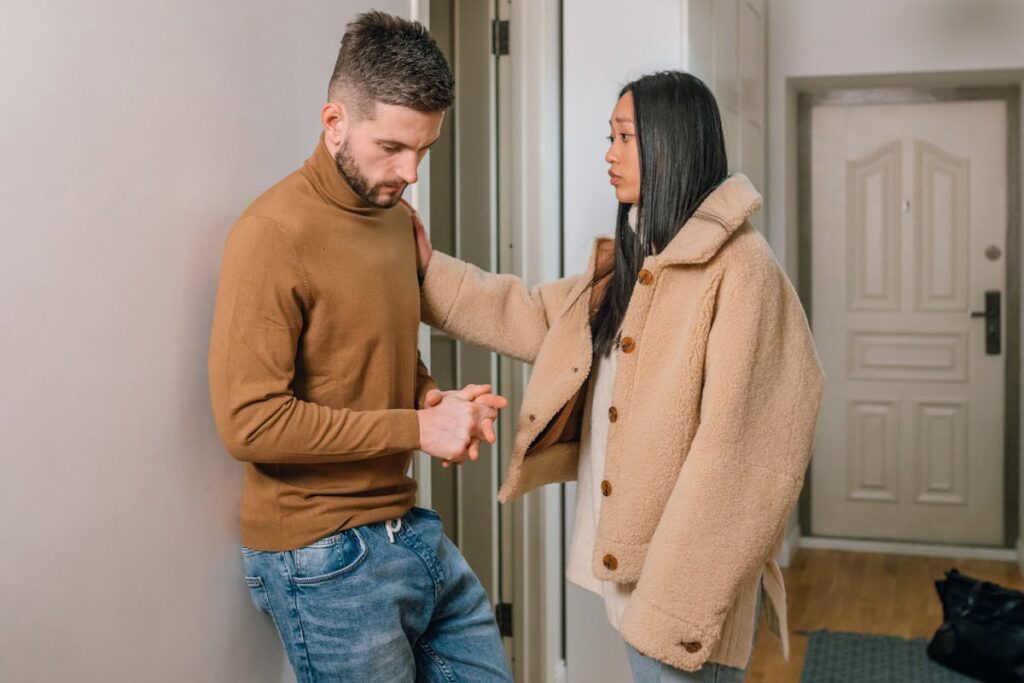
You might think avoiding eye contact is a sign of respect or politeness. However, it often comes across as disinterest or discomfort. People usually appreciate when you look at them, even briefly.
Not making eye contact can make conversations feel awkward or untrustworthy. It might seem like you’re hiding something or not fully engaged. A quick glance shows you’re paying attention without staring.
If you find direct eye contact uncomfortable, try looking near the eyes instead. This way, you still show respect without feeling overwhelmed. Balancing eye contact helps keep communication open and genuine.



